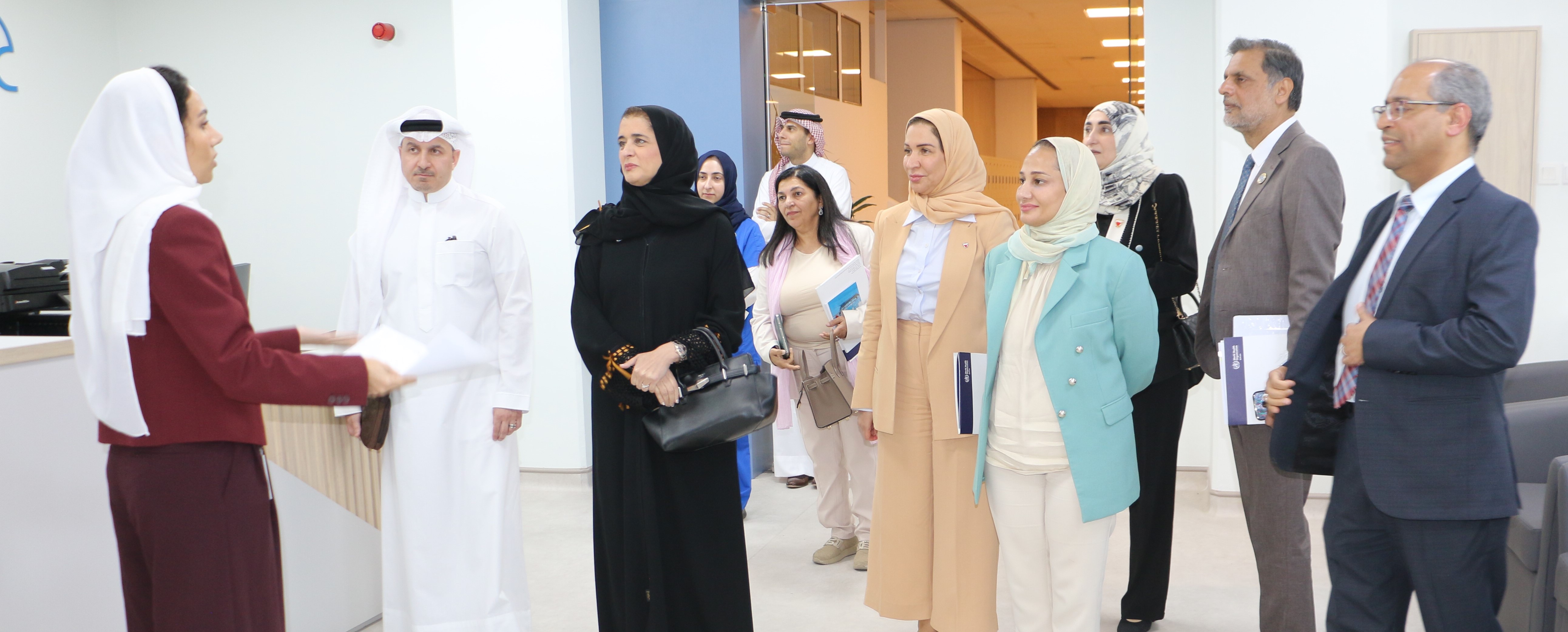
WHO Regional Director for the Eastern Mediterranean Praises Advances in Medical Training at AGU’s Clinical Skills and Simulation Centre
Arabian Gulf University
07 Aug, 2025
The World Health Organisation (WHO) Regional Director for the Eastern Mediterranean, Dr Hanan Balkhi, accompanied by the Acting WHO Representative in Bahrain, Dr Assad Hafeez, and a delegation of physicians, academics, health practitioners, and policymakers, visited the Clinical Skills and Simulation Centre at Arabian Gulf University (AGU) to review ongoing developments in health education. The visit coincided with a roundtable discussion hosted by the university focused on enhancing healthcare professional training to combat antimicrobial resistance.
During the visit, the delegation expressed strong interest in the centre’s innovative approaches, particularly the integration of modern simulation technologies in medical education, and their use to improve communication skills between physicians and patients. These technologies also support clinical decision-making, contributing to the development of more competent healthcare professionals capable of tackling future health challenges, including antimicrobial resistance.
Participants praised the commitment of AGU under the presidency of His Excellency Dr Saad Al Fuhaid to providing an advanced educational environment aligned with global healthcare training trends. The Clinical Skills and Simulation Centre serves as a pioneering educational platform that bolsters health awareness and educational efforts while underscoring the critical role of practical training in reducing the spread of antimicrobial resistance.
Notably, the centre received a five-year extension of its international accreditation from the American Society for Simulation. Furthermore, it has been accredited as a training centre for instructors in Basic Life Support and Advanced Cardiac Life Support programmes by the American Heart Association.
AGU continues to implement strategic expansion of the centre to meet the increasing educational needs of its medical students, leveraging the latest technological advancements in medical simulation to enhance training quality.
